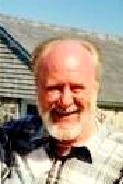
Michael Ruse is a British-born Canadian philosopher of science who specializes in the philosophy of biology and works on the relationship between science and religion, the creation–evolution controversy, and the demarcation problem within science. Ruse currently teaches at Florida State University.
Theistic science, also referred to as theistic realism, is the pseudoscientific proposal that the central scientific method of requiring testability, known as methodological naturalism, should be replaced by a philosophy of science that allows occasional supernatural explanations which are inherently untestable. Proponents propose supernatural explanations for topics raised by their theology, in particular evolution.
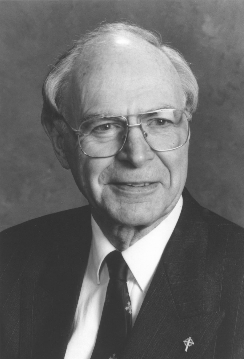
Arthur Robert Peacocke was an English Anglican theologian and biochemist.
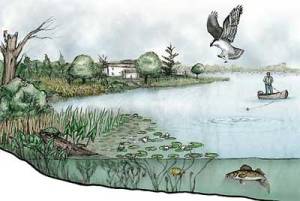
Religious naturalism is a framework for religious orientation in which a naturalist worldview is used to respond to types of questions and aspirations that are parts of many religions. It has been described as "a perspective that finds religious meaning in the natural world."
Metaphysical naturalism is a philosophical worldview which holds that there is nothing but natural elements, principles, and relations of the kind studied by the natural sciences. Methodological naturalism is a philosophical basis for science, for which metaphysical naturalism provides only one possible ontological foundation. Broadly, the corresponding theological perspective is religious naturalism or spiritual naturalism. More specifically, metaphysical naturalism rejects the supernatural concepts and explanations that are part of many religions.
Nancey Murphy is an American philosopher and theologian who is Professor of Christian Philosophy at Fuller Theological Seminary, Pasadena, CA. She received the B.A. from Creighton University in 1973, the Ph.D. from University of California, Berkeley in 1980, and the Th.D. from the Graduate Theological Union (theology) in 1987.
The Institute on Religion in an Age of Science (IRAS) is a non-denominational society that promotes and facilitates the ongoing dialectic between religion and science. The Institute has held annual week-long conferences at Star Island in New Hampshire since 1954. The conference attracts about 250 members and non-members each year. The 1964 conference, for example, was attended by 215 conferees, with speeches by figures including Theodosius Dobzhansky.
In social, cultural, and religious studies in the United States, the "epic of evolution" is a narrative that blends religious and scientific views of cosmic, biological, and sociocultural evolution in a mythological manner. According to The Encyclopedia of Religion and Nature, an "epic of evolution" encompasses
the 14 billion year narrative of cosmic, planetary, life, and cultural evolution—told in sacred ways. Not only does it bridge mainstream science and a diversity of religious traditions; if skillfully told, it makes the science story memorable and deeply meaningful, while enriching one's religious faith or secular outlook.
Ralph Wendell Burhoe was an important twentieth-century pioneer interpreter of the importance of religion for a scientific and technological world. He was awarded the Templeton Prize in 1980.
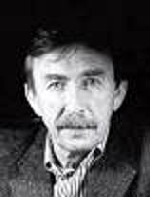
Loyal D. Rue is an American philosopher of religion. He is a professor emeritus of religion and philosophy at Luther College of Decorah, Iowa. He focuses on naturalistic theories of religion and has been awarded two John Templeton Foundation fellowships. He has been for many years a member and lecturer at the Institute on Religion in an Age of Science (IRAS).
Norbert Max Samuelson was a scholar of Jewish philosophy. He was Professor Emeritus at Arizona State University, having held the Grossman Chair of Jewish Studies there. He wrote 13 books and over 200 articles, with research interests in Jewish philosophy, philosophy and religion, philosophy and science, 20th-century philosophy, and Jewish Aristotelians with an emphasis on Gersonides ; he also lectured at university-level conferences around the world.
Taede Anne Smedes is a Dutch philosopher of religion specializing in the relationship between religion and science. He received a Ph.D. degree from the University of Groningen in 2004 for a thesis on Avoiding Balaam's Mistake: Exploring Divine Action in an Age of Scientism.
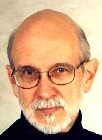
Jerome A. Stone is an American author, philosopher, and theologian. He is best known for helping to develop the religious movement of Religious Naturalism. Stone is on the Adjunct Faculty of Meadville Lombard Theological School; is Emeritus Professor of Philosophy at William Rainey Harper College; is in Preliminary Fellowship with the Unitarian Universalist Association; and is a member of the Highlands Institute of American Religious and Philosophical Thought and the Institute on Religion in an Age of Science (IRAS).

Karl E. Peters is a Professor Emeritus of Religion at Rollins College, Winter Park, FL, and former adjunct professor of philosophy, University of Hartford, Hartford, CT and adjunct professor of religion and science, Meadville Lombard Theological School, Chicago. He also is the former editor and then co-editor of Zygon: Journal of Religion and Science, and is a founder, organizer, and first President of the University Unitarian Universalist Society in central Florida. His scholarly research and teaching focuses on issues in science and religion, including the concept of God and evolution, epistemology in science and religion, world religions and the environment, and religious and philosophical issues in medicine.
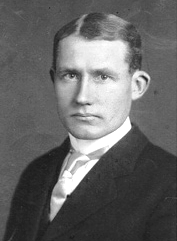
Henry Nelson Wieman (1884–1975) was an American philosopher and theologian. He became the most famous proponent of theocentric naturalism and the empirical method in American theology and catalyzed the emergence of religious naturalism in the latter part of the 20th century. His grandson Carl Wieman is a Nobel laureate, and his son-in-law Huston Smith was a prominent scholar in religious studies.

Spiritual naturalism, or naturalistic spirituality combines a naturalist philosophy with spirituality. Spiritual naturalism may have first been proposed by Joris-Karl Huysmans in 1895 in his book En Route.
Coming into prominence as a writer during the 1870s, Huysmans quickly established himself among a rising group of writers, the so-called Naturalist school, of whom Émile Zola was the acknowledged head...With Là-bas (1891), a novel which reflected the aesthetics of the spiritualist revival and the contemporary interest in the occult, Huysmans formulated for the first time an aesthetic theory which sought to synthesize the mundane and the transcendent: "spiritual Naturalism".

Gordon Dester Kaufman was an American theologian and the Mallinckrodt Professor of Divinity at Harvard Divinity School, where he taught for over three decades beginning in 1963. He also taught at Pomona College and Vanderbilt University, and lectured in India, Japan, South Africa, England, and Hong Kong. Kaufman was an ordained minister in the Mennonite Church for 50 years.

Donald Allen Crosby is an American theologian who is professor emeritus of philosophy at Colorado State University, since January 2000. Crosby's interests focus on metaphysics, American pragmatism, philosophy of nature, existentialism, and philosophy of religion. He is a member of the Highlands Institute of American Religious and Philosophical Thought and has been a leader in the discussions on Religious Naturalism.
Willem Bernard "Wim" Drees is a Dutch philosopher. As of the 1st of November 2014 he is professor of philosophy of the humanities at Tilburg University in the Netherlands. From 2008 until 2018 he was the editor-in-chief of Zygon, Journal of Religion & Science and professor of philosophy of religion at Leiden University, the Netherlands.
Theistic naturalism is a theologically-based belief system within philosophy which rejects divine intervention but maintains theism.
